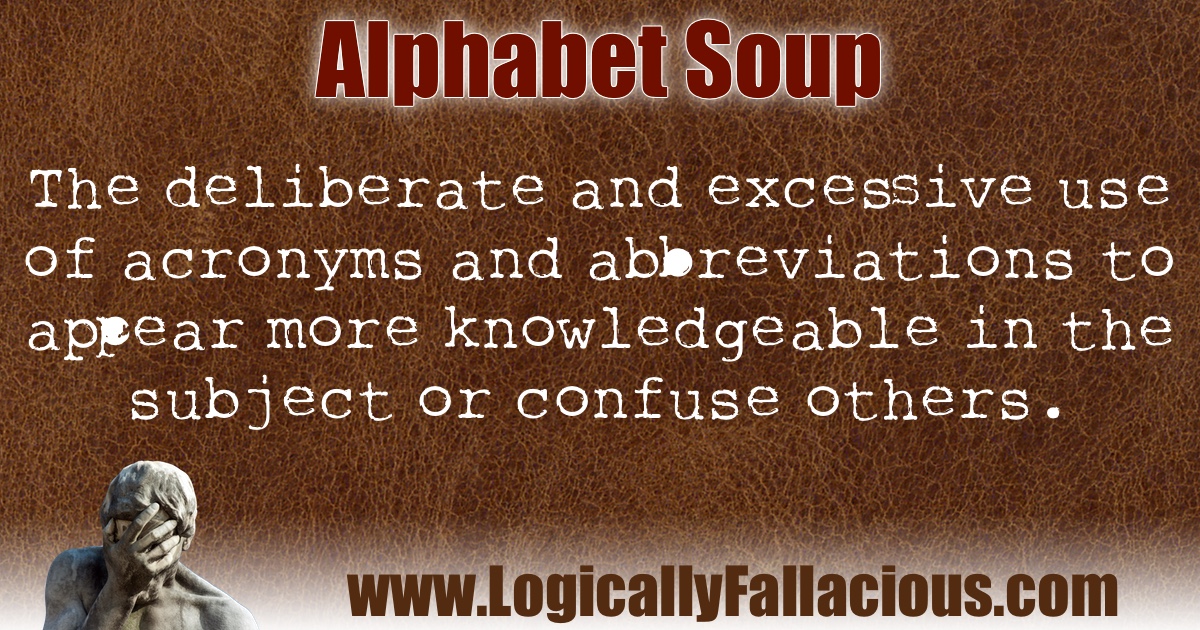Description: The deliberate and excessive use of acronyms and abbreviations to appear more knowledgeable in the subject or confuse others.
Logical Form:
Person 1 uses acronyms and abbreviations.
Therefore, person 1 knows what he or she is talking about.
Example #1:
In programming CGI, a WYSIWYG interface doesn't handle PHP or CSS very well. If you sign up for my personal consulting, I will show you how to program effectively.
Explanation: Simply overusing acronyms is not the problem here; it's the deliberate overuse for the purpose of making people think the speaker is very knowledgeable in this area, or perhaps to use terms the audience is unaware of, making the audience think they need the consulting service more than they thought they did.
Example #2:
Am I good at public speaking? Let's see. I have a CC, AC-B, AC-S, AC-G, CL, AL-B, AL-S, and a DTM. What do you think?
Explanation: These are all designations from Toastmasters International. In fact, many of them have more to do with leadership than speaking, but the average audience member would never know that. Besides, getting all these awards just means the person did the work needed, not that they are necessarily good at public speaking—kind of like certificates given out in fifth-grade gym class to all the kids who do more than six sit-ups.
Exception: "Excessive" is subjective. Acronyms and abbreviations are perfectly acceptable in many situations.
Tip: Don't be so quick to assume nefarious intentions. Sometimes people simply are unaware that they are overusing this type of language.

References:
This a logical fallacy frequently used on the Internet. No academic sources could be found.
Questions about this fallacy? Ask our community!